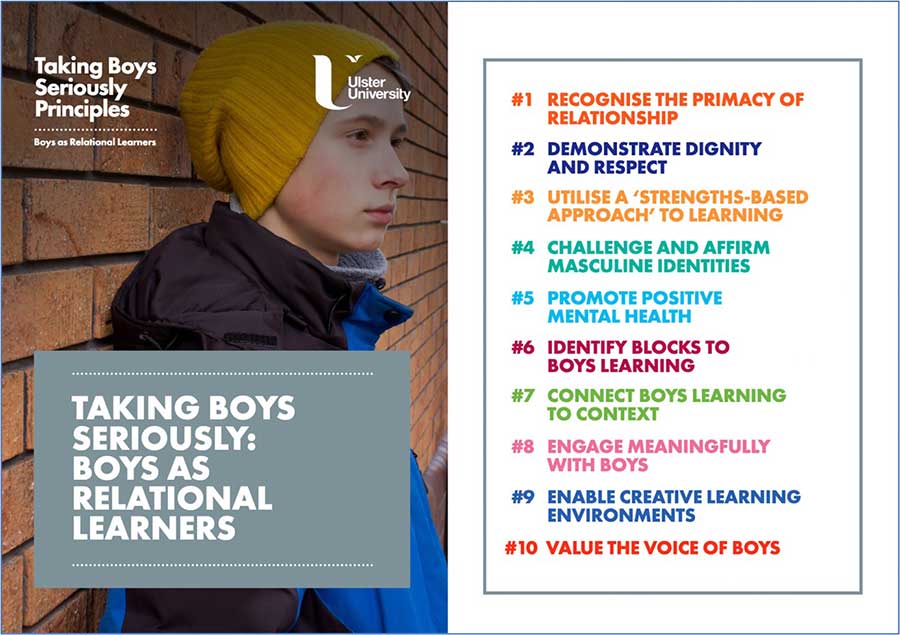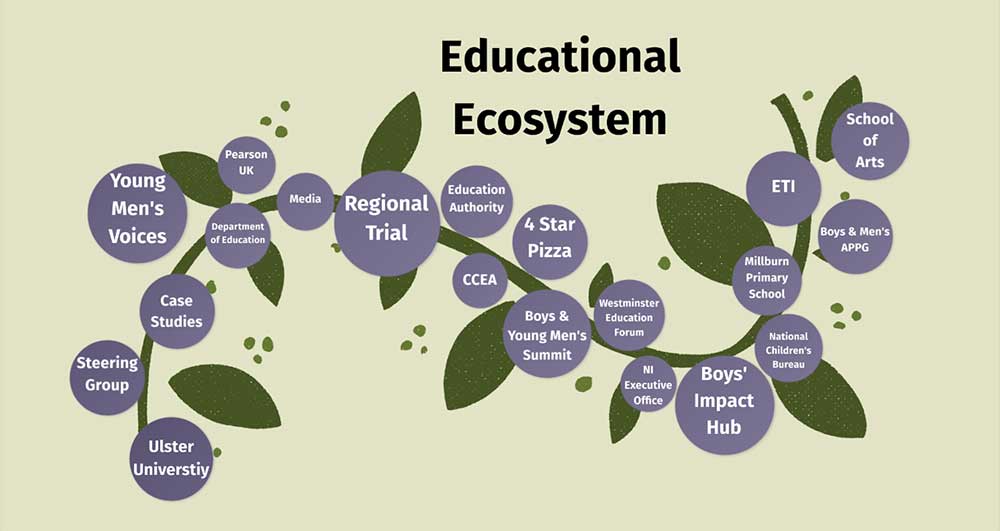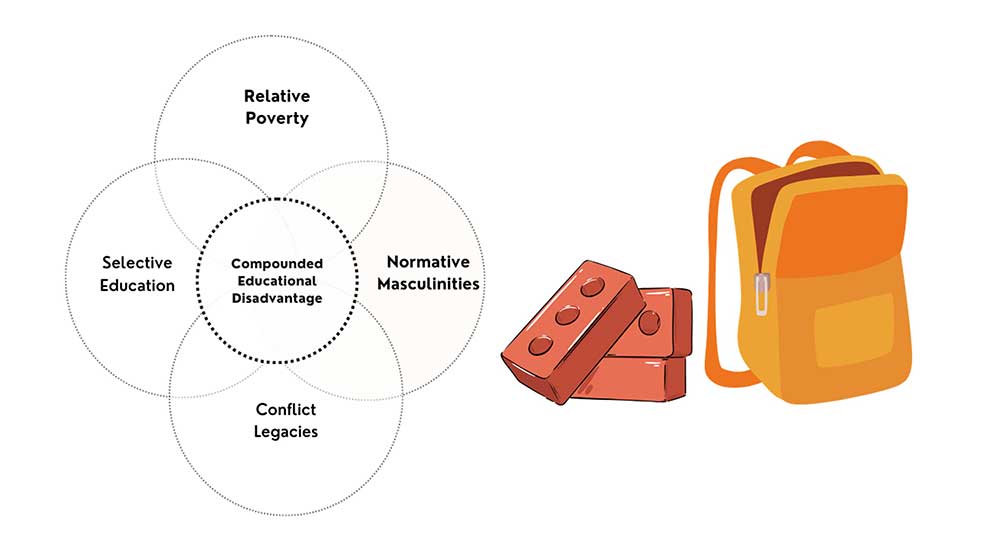Page content
Principal Investigator
Susan Morgan
Email: sm.morgan@ulster.ac.uk

About
Established in 2006, Taking Boys Seriously (TBS) is a longitudinal research project committed to working alongside adolescent boys and educators to promote flourishing across diverse educational settings.
Originally funded by the departments of Education and Justice in Northern Ireland (2006-2012) TBS was subsequently re-invested in by the Widening Access and Participation department at Ulster University with a 10-year commitment from 2018 to 2028.
As a sustained investment in communities across Northern Ireland TBS has developed strong partnerships with local schools and youth centres as well as regional youth organisations and educational bodies.
Collaboration between the various strands of the formal and informal education sectors is a signature strength of the TBS participatory action research methodology.
Decades of research evidence a consistent trend where boys and young men from areas of socio-economic deprivation are more likely not to attain the aspirational minimum of 5 A*-C grades in national General Certificate of Secondary Education (GCSE) qualifications.
Additionally, young men from these backgrounds are under-represented in Higher Education and for those who do enrol in university, a retention issue has been highlighted.
TBS adopts a strengths-based approach, working affirmatively with boys and educators to address multi-faceted issues behind the statistics.
Three threshold concepts have been generated through TBS which contextualises the research and shapes the unfolding research process:

TBS has found that meaningful relationships between boys and educators are crucial in facilitating engagement and holistic development in educational settings, particularly for boys and young men experiencing compounded educational disadvantage.
The 10 TBS principles of relational education provide a framework for embedding relational work with boys.


This concept celebrates the unique gift that individuals and institutions across the whole pipeline of education from early years onwards can bring enabling boys to thrive.
TBS promotes the collective capacities of communities and educational settings in advancing more equitable opportunities and outcomes for boys and young men experiencing compounded educational disadvantage.


The concept of compounded educational disadvantage was coined through the research in 2018 helping shape the research methodology and advance critical thinking about the causes and responses to persistent low levels of educational attainment and progression for some groups of adolescent boys.
It captures both systemic and contextual issues which in Northern Ireland include relative poverty, a selective education system, and normative masculinities constructed with reference to conflict legacies of segregation, polarisation, and residual violence. Each time a young man encounters one of these systemic issues it is as though another brick is added to their backpack making their journey through the education system more difficult.

Young Men’s Voices
TBS Steering Group
An active and committed steering group are co-creators of the research representing a cross-section of the education system.
Professor Brian Murphy
Dean of Academic Business Development
"The correlation between educational attainment and social mobility is well known; so too is the failure to eradicate entrenched social immobility. Our research seeks to break decades of leaving many boys and young men behind. This may mean change in policy; but it is most likely to involve changes in pedagogy and practice."

TBS Conference 2021
TBS Educators
Publications
Downloads
Research Team

Susan Morgan
Lecturer

Dr Andy Hamilton
Lecturer in Community Youth Work

Dr Ken Harland
Research Fellow



















